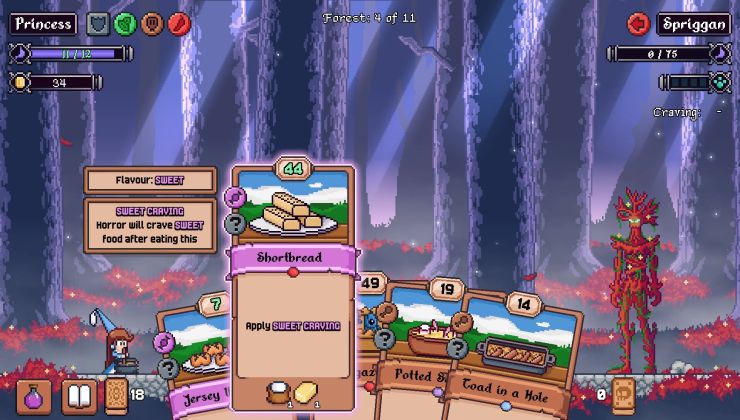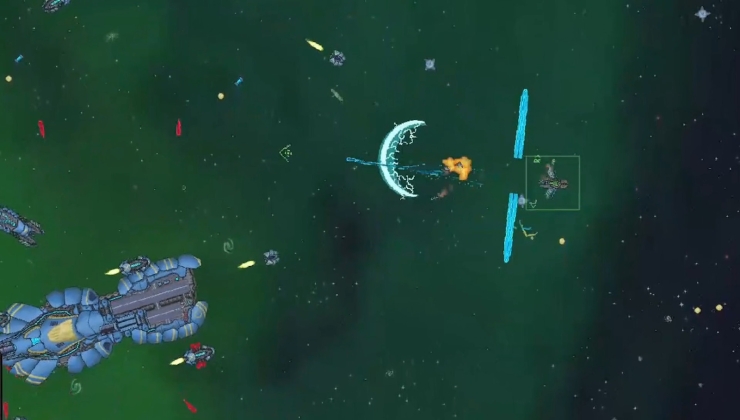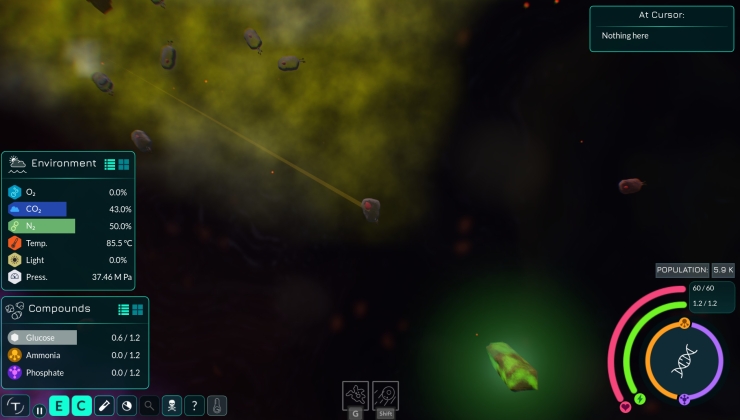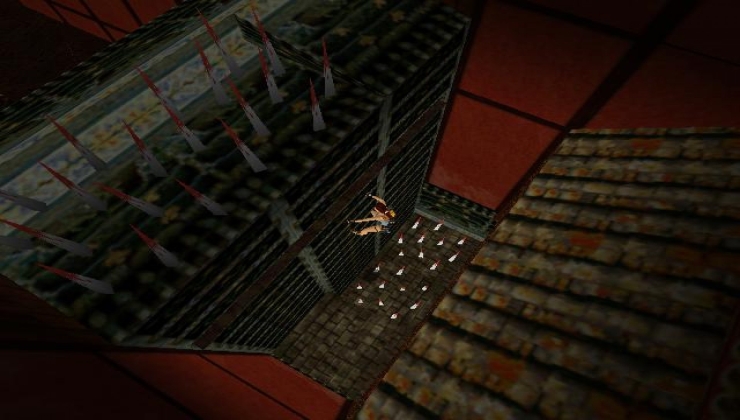There comes a time when everyone has to sit and think about what they use on their PC, especially if you're on Linux. For me, Arch Linux (via EndeavourOS) just wasn't working out any more and so I've moved to Fedora.
While I was reasonably happy with Arch Linux, it's just not stable enough for me personally. It's a very subjective thing of course, and highly dependent on what hardware you use — along with how often you update. For me, it just messed things up a bit too often, and last night was the final straw.
I updated either that day, or the day before, and just before a livestream was due to start, my SteelSeries headset no longer worked. No matter what I tried, following guide after guide about PipeWire, nothing helped. Just this weird and very quiet electrical static noise whenever I tried piping audio to it. Eventually it worked again by some downgrading, plus random hotplugging and testing it on a Windows machine for a sanity check and it started somewhat working again. My Microphone was another issue, at the same time it decided to be ridiculously quiet for no apparent reason I could see so there were wider problems. I had enough, I had work to do and after hours of hair-pulling — hello from Fedora.
Thankfully, with the likes of Flathub / Flatpak packages and how far along apps like Discover have come along for installing packages and setting things up, there's not a whole lot to learn. It's been a very long time since I used Fedora, and it was one of my first Linux distributions I tried sticking with back when it was "Fedora Core" and wow — it's always surprising to see how far we've come as a platform for doing anything.
Fedora does come with some of its own issues, like NVIDIA drivers being a nuisance to install, which they definitely should improve. If other distributions can do one-click or one-line installs, I'm sure they could do it too. However, it's just another point towards me swapping to AMD when prices settle, or perhaps Intel when Arc properly launches for desktop. I also need to figure out why Dropbox won't load on startup, some little things like that.
Anyway, are you really a Linux nerd if you don't distro-hop at least once a year? Jokes aside, I look forward to seeing why people keep recommending Fedora nowadays as a stable distribution, let's see how long it takes me to break it.
like NVIDIA drivers being a nuisance to install[https://www.if-not-true-then-false.com/2015/fedora-nvidia-guide/](https://www.if-not-true-then-false.com/2015/fedora-nvidia-guide/) helped a lot with issues, never failed me in years of Fedora.
Running the NVIDIA installer as suggested on this site is not suitable for the average user imho. I think it is better to keep your system in sync with the rpm/deb databases by using a package repository like negativo17 or rpm-fusion.
So it would indeed a recommendation matrix like:I'd add in:
You love customization and like to play with the desktop itself: go KDE with
OpenSuse or Arch (more stable vs more bleedeing edge)
You love the less is more approach and prefer a desktop that goes out of your way: go Gnome with
Debian or Ubuntu or Fedora (from stable to more bleeding edge)
(I’ve only stated the desktops and distributions I somewhat know, there are of course more)
You prefer a "traditional" desktop and for things to Just Work, but don't require bleeding edge releases: Go Cinnamon or Mate on Mint.
but beyond these i really like to install and test google's Fuscia os on my pc
because it seems some important projects will be supported by Fuscia as default like VULKAN api. and that os will be cross-hardware. One os for all.
For gaming I use a second arch install using QEMU/KVM with GPU passthrough, and a virtual windows install for steamvr and UE4/5 development.
I have the GPU passthrough devices routed back to my arch host system via a black magic HDMI capture card so I can run them all on the same TV and surround system.
Once you go with Arch you never go back.... :P
I am using EndeavourOS which is kinda Arch with easy installation...
Is just everything works...
I am even on testing repos on Arch with KDE Unstable , very few issues which most issues are solved within a day.
Well, the article says Arch, but I think it was EndeavourOS that Liam was on before he hopped on to Fedora. Indeed, it was his article about it that convinced me to make the same leap. I've been on Endeavour for about 2 or 3 months now. It's great - really enjoy it, and no breakages, whatsoever.
My only gripe is that LUKS takes about 40 seconds to boot - for some reason they decided to put LUKS on the /boot partition as well as the rest of the system, and then combined that with loads of encryption iterations. I guess it's secure, but goddam, it's ridiculous overkill.
A minor gripe though. The system itself is really just Arch and has all the advantages and disadvantages you'd expect from that.
SteamOS 3.0 is also based on Arch and Valve said in the recent past that it will be a similar experience to Manjaro KDE stable, so why not give this one a try. You know Arch quite well and Fedora differs a lot. E.G. for my home server I switched to openSUSE Tumbleweed (because I hope for a relatively stable rolling experience) and I ran into many bumps that wouldn't have occurred with Arch, because they use the K.I.S.S. principle that openSUSE doesn't want to use. (I couldn't disable SDDM / the display manager, because they got their own program that manages startup things.
With Manjaro you get a much more stable Arch base with a helpful community and the biggest repo that you can ever think of, the AUR!
Well, the article says Arch, but I think it was EndeavourOS that Liam was on before he hopped on to Fedora. Indeed, it was his article about it that convinced me to make the same leap. I've been on Endeavour for about 2 or 3 months now. It's great - really enjoy it, and no breakages, whatsoever.Specifically I used the EndeavourOS installer yes, but everything else on EndeavourOS is plain Arch, their extras are very minimal and all Arch updates come as normal.
To figure out how to do it. [The guide was simple,](https://wiki.archlinux.org/title/Offline_installation) but the process is not entirely intuitive and I screwed it up a few times by missing packages. Knowing how to do it properly now, it takes about 5 minutes to compile on a 2009 CPU.I tried to give Fedora a shot last year when my laptop's NIC died, but I couldn't figure out how to get the Wi-Fi driver compiled. I messed around with DNF, Yum, and probably yet another package manager but never ended up getting an internet connection after a few hours. On Arch, it took me about 2 hours to follow a pretty simple guide to getting my Wi-Fi drivers compiled.Hours to do what now? Sometimes I feel like using Mint and using most other distros is more like using a whole different OS. You install it, the stuff works, you start using it. Two hours? To compile a basic thing? Or worse? Gah. I don't have the time (or knowledge) for that nonsense.
I don't think I'll ever be able to use another distribution; Arch is the only one I've been able to figure out.
Unfortunately the WI-Fi drivers are not mainlined, so you would have had to compile it on any distribution. https://github.com/RinCat/RTL88x2BU-Linux-Driver
I tried to follow the Github instructions on Fedora but couldn't get it to work, from memory. I just had no idea what to do, and couldn't find any easy way to get them working following Fedora's wiki.
I was using Antergos and Arch distro through Zen installer for around 2 years. It was great most of the time but once every few months some little issue was arising. Not able to update/install some package because of some library version conflicts or similar. Probably AUR was also the cause of these bugs. When the system couldn't boot after another update, I decided to switch.
I found Fedora to be the perfect balance between bleeding edge and stability. Also Flatpak compensates for the AUR, or the least I personally have all the apps I need on Fedora with simple one-two clicks to install.
I'm glad Liam didn't go back to Ubuntu. Ubuntu, as far as I'm concerned, is no longer the reference for Linux desktop systems that it once was. The Snap daemon makes your startup slower.
By how much in real live? On my desktop system mounting (NFS) shares are by far the most costly startup activity. On my laptop... I mean once past the LUKS decryption we are talking about 8 to 9 seconds including the dreaded file system check.
And the Snap packages usually have much lower performance than the Flatpak versions. So why does Ubuntu keep pushing Snap when it's not competitive with Flatpak?
Again: What "lower performance"? The first startup is slower (and not even Canonical denies that). But a Firefox snap is just as fast as a deb one with JS benchmarks (BTTD). Blender seems to do just fine, despite being a snap package. I do have a fair share of Flatpaks as well (Hugin, KiCad, etc.) and they work perfectly fine, but this constant snap bashing is just... lame.
What I have also noticed is that their website where you can view the versions of packages is worthless: https://packages.ubuntu.com/focal/chromium-browser The Ubuntu LTS currently has Chromium version '100', not version 80.0.3987.
That's because it is a transitional package. It was introduced with Chromium 80 - since then Chromium has always been a Snap package. And it's actually smart: Should you use a repo which provides a Chromium 100 it will automatically replace the Snap package.
Well, the article says Arch, but I think it was EndeavourOS that Liam was on before he hopped on to Fedora. Indeed, it was his article about it that convinced me to make the same leap. I've been on Endeavour for about 2 or 3 months now. It's great - really enjoy it, and no breakages, whatsoever.Specifically I used the EndeavourOS installer yes, but everything else on EndeavourOS is plain Arch, their extras are very minimal and all Arch updates come as normal.
There's no such thing as the "EndeavourOS installer", you were using EndeavourOS as it configures everything for you not in Arch's way, which is a DIY way, but as EndeavourOS devs pre-configured it for you, so you should alter your title accordingly.
Again, Arch is not EndeavourOS just because EndeavourOS gets Arch's updates.
Last edited by sudoer on 9 Apr 2022 at 2:35 pm UTC
Honestly, this is a level of pedantic that just doesn't help anyone. There is no special "Arch way", everyone has it done slightly differently - because that's Arch. EndeavourOS is 99% just an installer, with a few extras. Once installed, you're on Arch.Well, the article says Arch, but I think it was EndeavourOS that Liam was on before he hopped on to Fedora. Indeed, it was his article about it that convinced me to make the same leap. I've been on Endeavour for about 2 or 3 months now. It's great - really enjoy it, and no breakages, whatsoever.Specifically I used the EndeavourOS installer yes, but everything else on EndeavourOS is plain Arch, their extras are very minimal and all Arch updates come as normal.
There's no such thing as the "EndeavourOS installer", you were using EndeavourOS as it configures everything for you not in Arch's way, which is a DIY way, but as EndeavourOS devs pre-configured it for you, so you should alter your title accordingly.
Again, Arch is not EndeavourOS because EndeavourOS gets Arch's updates.
It's not 100% pure and holy Arch on the way it's initially setup, but everything comes from Arch including every single update - that's Arch enough for me. Feel free to argue it, I don't care, it's Arch.
Edit: added a note on EndeavourOS so the purists can be quiet ;)
Last edited by Liam Dawe on 9 Apr 2022 at 3:27 pm UTC
It's also not relevant in this scenario, since EndeavourOS does not provide a configuration for Pipewire since by default it ships with PulseAudio still. So, the Pipewire configuration would have been exactly same on Arch and on EndeavourOS.Honestly, this is a level of pedantic that just doesn't help anyone. There is no special "Arch way", everyone has it done slightly differently - because that's Arch. EndeavourOS is 99% just an installer, with a few extras. Once installed, you're on Arch.Well, the article says Arch, but I think it was EndeavourOS that Liam was on before he hopped on to Fedora. Indeed, it was his article about it that convinced me to make the same leap. I've been on Endeavour for about 2 or 3 months now. It's great - really enjoy it, and no breakages, whatsoever.Specifically I used the EndeavourOS installer yes, but everything else on EndeavourOS is plain Arch, their extras are very minimal and all Arch updates come as normal.
There's no such thing as the "EndeavourOS installer", you were using EndeavourOS as it configures everything for you not in Arch's way, which is a DIY way, but as EndeavourOS devs pre-configured it for you, so you should alter your title accordingly.
Again, Arch is not EndeavourOS because EndeavourOS gets Arch's updates.
It's not 100% pure and holy Arch on the way it's initially setup, but everything comes from Arch including every single update - that's Arch enough for me. Feel free to argue it, I don't care, it's Arch.
I really hope more apps adopt Flatpak though - it's so annoying when they only have .deb or Snap option, no Flatpak or actual rpm to make using them on Fedora easier. I really don't want to bother with Distrobox or JuNest or manual build to deal with those issues, which is why it's a no-go for my gaming PC.
Well, the post says "Just curious if anyone else experienced this. I haven't seen any similar postings."... (And he was on Ubuntu 20.10?) Anyway, I had it up on my laptop with a 22.04 Ubuntu and didn't experience any "anomalies".Again: What "lower performance"? The first startup is slower (and not even Canonical denies that). But a Firefox snap is just as fast as a deb one with JS benchmarks (BTTD). Blender seems to do just fine, despite being a snap package. I do have a fair share of Flatpaks as well (Hugin, KiCad, etc.) and they work perfectly fine, but this constant snap bashing is just... lame.I've seen performance comparison from Firefox several times in the last few months, snap versus flatpak, and snap is always improbably crappy. Here's an example: https://www.reddit.com/r/FoundryVTT/comments/tnpkdx/firefox_snap_causing_cpu_and_fan_spikes_flatpak/
If the performance and stability aren't there, why force the technology?
It is telling that 'unsnap' is being developed by an old Canonical employee:
https://www.reddit.com/r/Ubuntu/comments/twwuid/a_new_tool_unsnap_helps_you_move_from_snaps_to/
Because this very package has this very version. Go to "focal-updates" and it shows 1:85.0.4183.83-0ubuntu0.20.04.2 as the version. Exactly the same version Synaptic finds in the repos. So the web page is spot on (and presumably auto-generated from the apt database). This package does not provide Chromium - just a simple script which does something like "snap install chromium".Why are all these pages still kept online by Canonical, when it no longer contains useful information?What I have also noticed is that their website where you can view the versions of packages is worthless: https://packages.ubuntu.com/focal/chromium-browser The Ubuntu LTS currently has Chromium version '100', not version 80.0.3987.That's because it is a transitional package. It was introduced with Chromium 80 - since then Chromium has always been a Snap package. And it's actually smart: Should you use a repo which provides a Chromium 100 it will automatically replace the Snap package.
I have to say that after several years of using FreeBSD, I'm increasingly wondering why Ubuntu was designed.Is this about Linux or Ubuntu? Because you always say "Ubuntu" but actually mean "Linux". And what's your point? If you think the improved performance of FreeBSD in certain benchmarks (as a frequent consumer of [Phoronix](https://www.phoronix.com/scan.php?page=article&item=bsd-linux-eo2021&num=7) I am well aware, that FreeBSD is occasionally faster in certain benchmarks) is that important - well, use FreeBSD. I work on my machine on a daily basis and I prefer my tools to be (a) available for my OS and (b) work hassle-free.
Let's take a look at FIO, the gold standard for storage benchmarks:
https://openbenchmarking.org/embed.php?i=1901268-SP-ZFSBSDLIN95&sha=5ca0c1f&p=2
https://openbenchmarking.org/embed.php?i=1901268-SP-ZFSBSDLIN95&sha=12872ac&p=2
https://openbenchmarking.org/embed.php?i=1901268-SP-ZFSBSDLIN95&sha=49228e7&p=2
Network latency of FreeBSD is also better than that of Ubuntu.
ZFS has fewer bugs in FreeBSD compared to Ubuntu.
FreeBSD is a more consistent architecture and also has slightly higher security.
Docker is significantly less secure than FreeBSD Jails.
NginX runs faster on FreeBSD than on Ubuntu.
..
You can also game on FreeBSD:
https://www.freshports.org/games/homura/
https://www.freshports.org/games/linux-steam-utils/
Just about everything Ubuntu has done in the last 10 years has been a failure.
Unity, Mir, Touch,..
Now 'snaps'.
Why not just stop Ubuntu and switch to FreeBSD, the system that has been better than Ubuntu for performance, stability and security for the last 30 years. The system that, unlike Ubuntu, does very little or no idiotic 'innovations' and focuses on things that are really improvements.
OTOH: *BSD is of course much more elitist than even Arch...
Small edit: That being said, it's not my daily driver. I've got a drive reserved for it to run games that have better performance on Linux, particularly but not limited to Elden Ring currently.
Last edited by JustinWood on 9 Apr 2022 at 4:52 pm UTC
As someone very new to all things Linux, I ended up landing on the recently released Nobara Project by Glorious Eggroll. Sounds like it simplifies some of the on-boarding versus traditional Fedora spins. https://nobaraproject.org/
Small edit: That being said, it's not my daily driver. I've got a drive reserved for it to run games that have better performance on Linux, particularly but not limited to Elden Ring currently.
Well, when you are new to Linux I would definitely stick to one of the mainstream distros like Fedora, Mint, Manjaro or Ubuntu. You will inevitably run into "problems" (probably not problems per se, but things that are just... different) and having forums and documentation for your distribution (and not just a "quite similar one") helps tremendously.
jm2c
Well, the post says "Just curious if anyone else experienced this. I haven't seen any similar postings."... (And he was on Ubuntu 20.10?) Anyway, I had it up on my laptop with a 22.04 Ubuntu and didn't experience any "anomalies".Have you done an extensive benchmark between the performance of the apps in Flatpak and Snap? As far as I know, with Snap you lose an average of 6%, and with Flatpak on average between 0 and 2%.
That means that thanks to Snap you lose an average of 5% in performance compared to Flatpak.
I did the 3 [browserbench](https://browserbench.org/) Benchmarks and compared the deb-Version from the PPA with the snap version. Both versions with the same add-ons and same number of tabs open.
Speedometer: 78.0 (deb) vs. 77.2 (snap)
JetStream2: 63.678 (deb) vs. 67.811 (snap)
MotionMark: 48.29 (deb) vs. 65.92 (snap)
Looking at this anecdotal result the snap version is actually faster than the deb package - definitely not "measurably" slower.
The start-up times are also a big difference.
To give an example: https://old.reddit.com/r/Ubuntu/comments/tjwsza/firefox_now_only_available_via_snap/i248zy2/
- Firefox snap start up performance immediately after boot (no file buffer-caching): 10 seconds, ugg
- Firefox snap start up performance with buffer-caching: 4 seconds, this is annoying since I open the browser and close often in my workflows
You can see he says 'i9-11900H and 2TB SSD'
Guess how long the latest Firefox takes to boot on my very old i3-3240 and 850 EVO 500GB SSD on my FreeBSD system? The answer: less than 2 seconds.
Is that progress?
Well, if "startup time" is your prime concern, then we peaked decades ago when I could cram a whole application written in assembler in a few kB. This is not the prime goal of either flatpak or snap.
Manjaro unstable is on the same level as Arch stable. For years I was running Manjaro stable, but then I switched to Manjaro testing and it's been quite fine. It's a bit more advanterous but also more in-time with the updates. However, when I switched to Manjaro unstable aka Arch stable, this was a whole another thing. The OS can break pretty fast and hard. There were quite damaging updates along the way. Fixes came in matter of hours, but I was too late, I updated to packages that were broken and that were crutial for the OS to function. Luckily, backup is always there to go back and wait for the fix a little bit. And if not backup, there is also chrooting form live version.
So now, I switch to Manjaro unstable only if I'm impatience to get the newest packages like for example: the newest Plasma release. But after that, I switch to testing.
This is why I understand what you mean by saying that Arch is too unstable for you. It's great but too advanterous and tireing on the long run. Manjaro testing in my case is the sweetest spot - where you get the updates pretty fast (a few days, up to a week later compared to Arch stable) but many of the broken packages are sifted out. Still, if some problem goes through, there is still backup and Manjaro forums, that help with the fixes. For other people, Manjaro stable may be the better choice.
Anyway, Manjaro offers a great freedom - a power of Arch but with safety levels. You can pick what you prefer or switch back and forth (with a simple command) between stability levels. If Endeavour OS is just Arch, then I know for sure, it's not for me either. Manjaro for all those years is still my number one.
Last edited by michaldybczak on 9 Apr 2022 at 8:07 pm UTC













 How to set, change and reset your SteamOS / Steam Deck desktop sudo password
How to set, change and reset your SteamOS / Steam Deck desktop sudo password How to set up Decky Loader on Steam Deck / SteamOS for easy plugins
How to set up Decky Loader on Steam Deck / SteamOS for easy plugins
See more from me